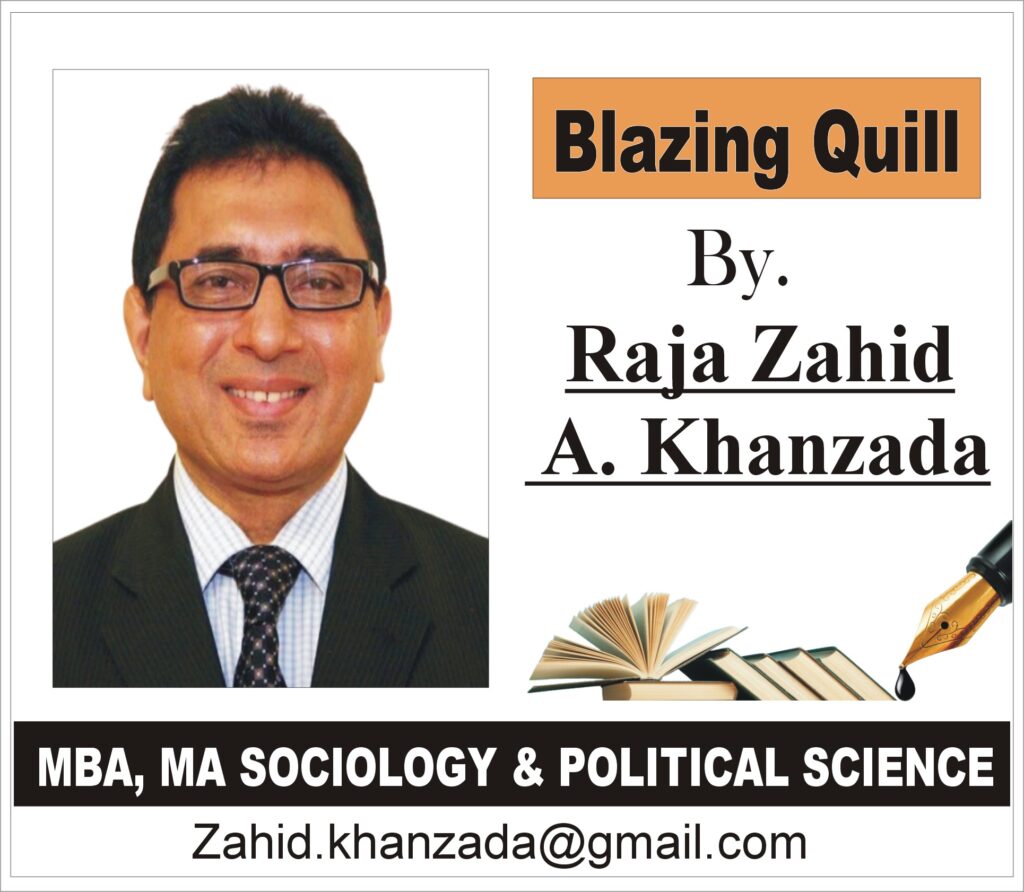The United Nations Session, Palestine’s Blood, and the World’s Conscience
By Raja Zahid Akhtar Khanzada
In New York City, around the towering structure of the United Nations, the streets carry an invisible weight. The September air trembles with unrest, echoing chants of protest and the unending tears of centuries past.
On September 9, 2025, the 80th session of the United Nations General Assembly began. This is the very hall where the world’s most powerful leaders have stood, making lofty promises of peace, reciting verses of justice, only to later sign their names in the ink of silence.
But this time, the scene feels different.
Gaza, a narrow strip of land, has now turned into a vast graveyard. More than sixty thousand Palestinians have been killed in this war. Among the dead are children whose laughter has been silenced forever, mothers stripped of their dignity, and fathers burying their sons amid the rubble of what were once homes. Hundreds of thousands more have been maimed, losing limbs to the relentless violence. These are not mere numbers. They are a stinging slap on the face of humanity, a haunting reminder of how hollow the word “peace” has become in the corridors of power.
For the first time in history, nations that had always stood firmly by the United States are beginning to question Israel. Canada has officially recognized Palestine, with Prime Minister Mark Carney declaring, “We want to build a future where peace is possible for both states.”
Australia followed suit, with Prime Minister Anthony Albanese announcing that the recognition is a tribute to the aspirations of the Palestinian people.
And in a historic move, Britain — the very country that laid the groundwork for Israel’s creation on Palestinian soil over seven decades ago — has now taken the first step toward correcting the course of history. Prime Minister Keir Starmer stated, “This is not a reward for terrorism but an attempt to keep hope alive.”
Portugal too has recognized Palestine, calling the two-state solution “the only path to lasting peace.” Earlier this year, Mexico had also extended official recognition.
This is no longer the action of just four or five nations. It is a growing tide. France, Belgium, Luxembourg, Malta, and New Zealand are expected to follow suit during this General Assembly session.
By September 23, 2025, over 156 of the UN’s 193 member states had recognized Palestine as a sovereign state — and the list continues to grow.
The greatest contradiction in global politics is now out in the open. The United States, long Israel’s unwavering protector, is increasingly isolated. American diplomats and the President continue to argue that these recognitions are nothing more than “rewards for Hamas,” but the world is no longer buying that narrative. The day is fast approaching when, inside the grand hall of the UN, the U.S. will stand with only a handful of Israeli diplomats while the rest of the world aligns itself with Palestine. At that moment, the cracks in the walls of Israel’s power will become starkly visible.
When London announced its recognition of Palestine, Israeli Prime Minister Benjamin Netanyahu reacted sharply, calling it “a ridiculous and dangerous decision — a reward for terrorism.”
Prime Minister Starmer’s response was firm: “This is not a reward for any terrorist group. It is an effort to save a dream on the verge of dying — the dream of two states living side by side, a secure Israel and a free Palestine.”
The upcoming debate at the General Assembly, from September 23 to 27, will not merely be a battle of words. Behind every speech will echo the cries of Gaza’s slain children. In the shadow of every resolution will linger the images of destroyed homes.
During this session, more countries are expected to formally recognize Palestine, with France, Belgium, Luxembourg, and Malta standing at a pivotal moment in their histories.
This war has spilled more than just blood on the ground — it has shredded the very conscience of the world.
Just three days ago, in northern Gaza, thousands stood in line for food and water. Then the Israeli planes came, and the line of the living turned into a line of corpses.
Is that not enough to awaken the world’s eyes?
The last words of a Palestinian child still echo in her mother’s ears:
“Mother, I am thirsty…”
And then there was silence.
That silence should reverberate across every table at the United Nations. This is the moment when the world must decide what humanity truly means.
This piece is a lament, a eulogy, a mourning for the souls that no longer breathe, for the dreams buried beneath the earth, and for the hopes gasping for air.
The land of Palestine is asking:
“Is freedom the sole privilege of powerful nations?”
“Will the dreams of the weak always be crushed beneath the boots of the strong?”
Perhaps this session of the United Nations will not answer these questions.
But one thing is certain: a new chapter of history is being written — a chapter where the blood of Palestine will ink the words of justice.
As the bell rings for the session in New York, world leaders will gather inside the hall, but outside, Gaza’s children, mothers, and fathers will be standing with their questions.
Their answers will not be found in resolutions or speeches but in the awakening of the world’s conscience.
If this session, too, remains confined to words, Gaza’s lament will grow longer, and humanity itself will grow ever smaller.



